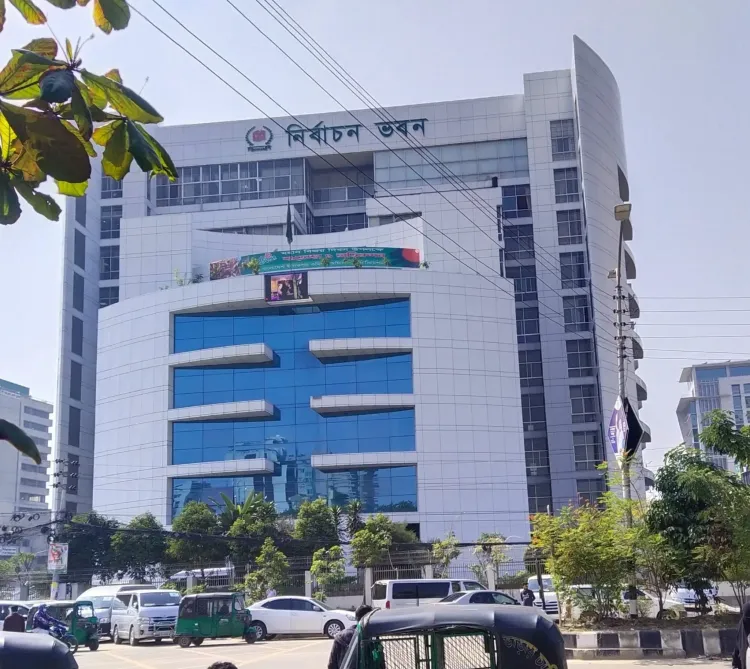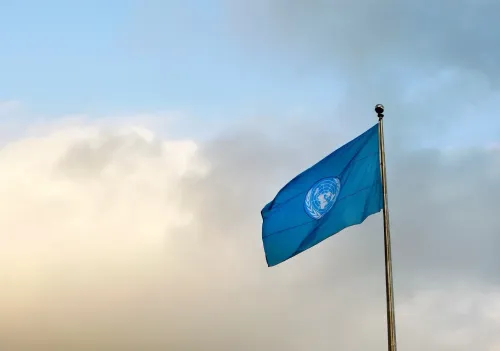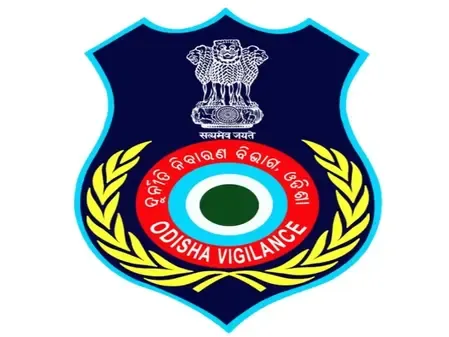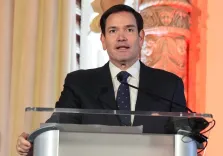Should Individuals Indicted in ICT be Disqualified from Elections in Bangladesh?

Synopsis
Key Takeaways
- Election Commission emphasizes need for political consensus.
- Proposals must not stir political controversy.
- Historical context of electoral reforms in Bangladesh.
- Concerns over potential misuse of disqualification provisions.
- International guidelines regarding political party participation.
Dhaka, May 1 (NationPress) The Election Commission (EC) of Bangladesh announced on Thursday that it will not regard the suggestion to disqualify individuals and fugitives charged in the International Crimes Tribunal (ICT) from participating in the forthcoming elections as 'immediately actionable'. While refraining from mentioning former Prime Minister Sheikh Hasina or her party, the Awami League, the constitutional authority emphasized the need for a political consensus to ascertain the eligibility and disqualification of candidates for elections.
Last month, the Cabinet Division of Bangladesh submitted various recommendations from the electoral system reform committee to the EC, labeling them as "immediately actionable". The commission was tasked with determining the timeframe required for implementation and whether any financial aspects were involved.
The EC, as reported by Bangladesh's prominent Bengali daily Prothom Alo on Thursday, does not believe that all the recommendations presented in the cabinet division letter are immediately implementable, except for those that do not stir political controversy or incur financial obligations.
On Wednesday, the EC communicated its views to the Cabinet Division regarding the immediate implementation proposals from the Reform Commission.
Election Commissioner Abul Fazal Sanaullah stated that the EC plans to propose a set of electoral reforms to the government that transcends political disputes and can be executed without delay, as they do not necessitate a political consensus.
In March, the EC expressed its disagreement with the National Consensus Commission on at least 28 recommendations from the Reform Commission, including the suggestion to 'prohibit individuals declared as fugitives by the court from becoming candidates'. They warned that such a provision could be exploited for malicious ends.
After the ousting of Hasina last August, multiple efforts were made by the interim government led by Muhammad Yunus to exclude her and the Awami League from participating in national elections.
The Yunus-led interim government has also issued numerous arrest warrants against the former PM, her family, and Awami League supporters following its assumption of power.
Recently, Bangladesh requested Interpol to issue a 'red notice' against former PM Hasina and 11 others in connection with allegations of conspiracy to overthrow the Yunus-led interim government.
Several political factions, who collaborated with the Yunus-led interim government to topple the previous democratically elected government of Hasina, have been calling for a ban on Awami League from contesting in the upcoming elections.
Nevertheless, any prohibition on the Awami League would contravene the United Nations directive against banning any political party from participating in elections. "Refrain from political party bans that would undermine a return to a genuine multiparty democracy and effectively disenfranchise a large part of the Bangladeshi electorate," stated a fact-finding report from the Office of the United Nations High Commissioner for Human Rights (OHCHR).










